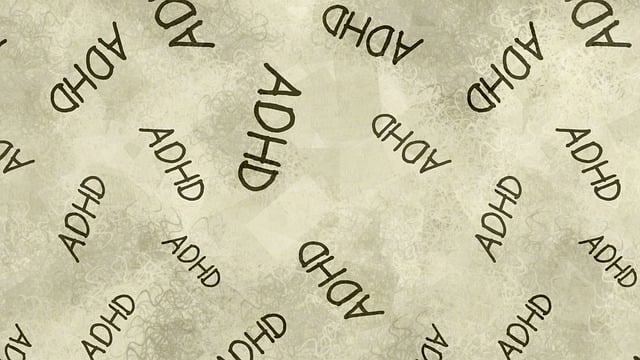Mental wellness program evaluation is a comprehensive process that leverages both quantitative (e.g., risk assessment tools) and qualitative (e.g., interviews, focus groups) methods to assess interventions like Superior Parenting Skills Therapy (SPST). SPST, based on Mind Over Matter principles, aims to improve parental skills for better child mental health. The evaluation involves meticulous Mental Health Policy Analysis, tracking changes in parental behaviors, child well-being, and stress reduction over time. Quantitative tools measure specific outcomes, while qualitative feedback offers deep insights into program effectiveness. Data from these evaluations guides continuous improvement, ensuring SPST and similar programs meet diverse needs and enhance mental wellness outcomes.
Mental wellness program evaluation is a multifaceted process that ensures initiatives like Superior Parenting Skills Therapy (SPST) meet their intended goals. This article explores various methods used to assess SPST’s efficacy, from quantitative metrics tracking participant progress to qualitative feedback capturing personal narratives. By integrating continuous improvement strategies based on evaluation data, programs can enhance outcomes and better serve those they support. Understanding these evaluation methods is crucial for optimizing mental wellness interventions.
- Understanding Mental Wellness Program Evaluation
- Assessing the Efficacy of Superior Parenting Skills Therapy
- Quantitative Methods for Measuring Success
- Qualitative Feedback: Voices of Participants and Families
- Continuous Improvement: Using Evaluation Data to Enhance Programs
Understanding Mental Wellness Program Evaluation

Mental wellness program evaluation is a crucial process that measures the effectiveness and impact of interventions aimed at enhancing mental health and well-being. It involves systematically assessing various aspects of a program, including its design, implementation, outcomes, and participant satisfaction. By understanding these elements, mental health professionals can ensure that their programs are not only reaching intended goals but also making a positive difference in individuals’ lives.
Evaluating mental wellness initiatives goes beyond mere satisfaction surveys. It includes quantitative methods such as risk assessment tools to gauge changes in symptoms or behaviors over time and qualitative approaches like interviews and focus groups to gain deeper insights into participants’ experiences. Incorporating superior parenting skills therapy, social skills training, and mental health awareness components within these evaluations allows for a comprehensive understanding of program strengths and areas for improvement. This holistic approach ensures that the interventions are evidence-based, culturally sensitive, and tailored to meet diverse needs.
Assessing the Efficacy of Superior Parenting Skills Therapy

The evaluation of mental wellness programs is a multifaceted process that requires a deep understanding of therapeutic techniques and their impact on individuals’ lives. One such program that has garnered attention is Superior Parenting Skills Therapy, which focuses on enhancing parental capabilities to positively influence children’s mental health. This approach aligns with the broader concept of Mind Over Matter Principles, emphasizing the power of mental strategies in fostering resilience. By assessing the program’s efficacy, researchers and practitioners can gauge its success in meeting the growing demand for effective mental health solutions.
To effectively evaluate Superior Parenting Skills Therapy, a comprehensive Mental Health Policy Analysis and Advocacy is essential. This involves examining the program’s design, implementation, and outcomes through rigorous research methods. Assessing changes in parental behaviors and child well-being over time, as well as measuring improvements in stress reduction methods, provides valuable insights into the therapy’s overall effectiveness. Such evaluations are crucial for informing policy decisions and ensuring that resources are allocated to programs that demonstrably contribute to improved mental wellness outcomes.
Quantitative Methods for Measuring Success

Quantitative methods play a crucial role in evaluating the success of mental wellness programs, particularly when focusing on improving superior parenting skills through therapy. These approaches involve the use of structured tools and surveys to measure specific outcomes and track progress over time. For instance, pre-and post-program assessments can gauge changes in participants’ mental health scores, stress levels, and overall well-being using standardized questionnaires. This data provides tangible evidence of the program’s impact and helps identify areas that require improvement.
One such effective quantitative method is the inclusion of compassion cultivation practices within the evaluation process. By measuring participants’ self-reported compassion towards themselves and others, researchers can assess the program’s ability to foster empathy and reduce negative self-perceptions. Additionally, mental wellness journaling exercise guidance can offer insights into individuals’ emotional states and their ability to apply learned techniques in daily life, further enhancing the evaluation’s depth and validity.
Qualitative Feedback: Voices of Participants and Families

Obtaining qualitative feedback from participants and their families is a powerful method to evaluate mental wellness programs. This approach allows for an in-depth understanding of the program’s impact, as it captures individuals’ subjective experiences and perceptions. Through open-ended questions and focused interviews, program organizers can gather rich insights into what worked well, areas for improvement, and the overall satisfaction of those involved.
The voices of participants and families provide a nuanced view, highlighting specific aspects such as the usefulness of certain therapy techniques, like Superior Parenting Skills Therapy, in fostering emotional well-being promotion techniques. This feedback is invaluable for refining programs, ensuring they remain relevant and effective in meeting the diverse needs of their target audience. Moreover, it creates a sense of community engagement and ownership, encouraging continuous improvement and enhancing the overall mental wellness podcast series production.
Continuous Improvement: Using Evaluation Data to Enhance Programs

Evaluation data plays a pivotal role in the continuous improvement of mental wellness programs. By regularly assessing and analyzing program outcomes, mental health professionals can identify areas of strength and weakness, allowing them to make informed decisions for enhancement. This process involves using evidence-based methods to measure the impact of interventions and track progress over time. For instance, Superior Parenting Skills Therapy might employ pre-post assessments to gauge improvements in parental coping strategies, thus refining its approach based on actual participant outcomes.
Integrating evaluation data into program design fosters a culture of quality assurance. Mental health professionals can leverage this data for risk management planning and risk assessment, ensuring the safety and well-being of both clients and practitioners. Self-awareness exercises, often integral to such evaluations, encourage reflection and promote growth among therapists. This iterative process ultimately contributes to more effective and tailored interventions, enhancing the overall quality of mental wellness programs.
Evaluating mental wellness programs, such as the Superior Parenting Skills Therapy, is a multifaceted process that combines both quantitative and qualitative methods. By assessing efficacy through structured measures and gathering qualitative feedback from participants and families, we gain valuable insights into program success. Integrating this data enables continuous improvement, ensuring these interventions remain effective and tailored to the evolving needs of those seeking support for their mental wellness.














